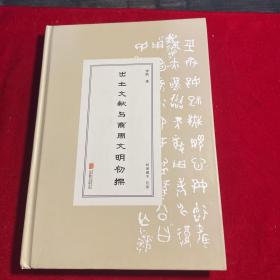
The Odyssey 【英文原版 欧德赛】
实物拍摄 内页干净无笔迹划痕无缺损
¥ 50 4.5折 ¥ 110.7 八五品
仅1件
北京昌平
认证卖家担保交易快速发货售后保障
作者Homer(荷马) 著
出版社Farrar, Straus and Giroux
出版时间1998-11
装帧平装
货号3-4
上书时间2024-06-21
- 店主推荐
- 最新上架
商品详情
- 品相描述:八五品
图书标准信息
- 作者 Homer(荷马) 著
- 出版社 Farrar, Straus and Giroux
- 出版时间 1998-11
- ISBN 9780374525743
- 定价 110.70元
- 装帧 平装
- 开本 其他
- 纸张 胶版纸
- 页数 515页
- 正文语种 英语
- 【内容简介】
-
The classic translation of The Odyssey, now in a Noonday paperback.
Robert Fitzgerald's translation of Homer's Odyssey is the best and best-loved modern translation of the greatest of all epic poems. Since 1961, this Odyssey has sold more than two million copies, and it is the standard translation for three generations of students and poets. The Noonday Press is delighted to publish a new edition of this classic work.Fitzgerald's supple verse is ideally suited to the story of Odysseus' long journey back to his wife and home after the Trojan War. Homer's tale of love, adventure, food and drink, sensual pleasure, and mortal danger reaches the English-language reader in all its glory.
Of the many translations published since World War II, only Fitzgerald's has won admiration as a great poem in English. The noted classicist D. S. Carne-Ross explains the many aspects of its artistry in his Introduction, written especially for this new edition.
The Noonday Press edition also features a map, a Glossary of Names and Places, and Fitzgerald's Postscript. Line drawings precede each book of the poem.
- 【作者简介】
-
We know very little about the author of The Odyssey and its companion tale, The Iliad. Most scholars agree that Homer was Greek; those who try to identify his origin on the basis of dialect forms in the poems tend to choose as his homeland either Smyrna, now the Turkish city known as Izmir, or Chios, an island in the eastern Aegean Sea.
According to legend, Homer was blind, though scholarly evidence can neither confirm nor contradict the point.
The ongoing debate about who Homer was, when he lived, and even if he wrote The Odyssey and The Iliad is known as the "Homeric question." Classicists do agree that these tales of the fall of the city of Troy (Ilium) in the Trojan War (The Iliad) and the aftermath of that ten-year battle (The Odyssey) coincide with the ending of the Mycenaean period around 1200 BCE (a date that corresponds with the end of the Bronze Age throughout the Eastern Mediterranean). The Mycenaeans were a society of warriors and traders; beginning around 1600 BCE, they became a major power in the Mediterranean. Brilliant potters and architects, they also developed a system of writing known as Linear B, based on a syllabary, writing in which each symbol stands for a syllable.
Scholars disagree on when Homer lived or when he might have written The Odyssey. Some have placed Homer in the late-Mycenaean period, which means he would have written about the Trojan War as recent history. Close study of the texts, however, reveals aspects of political, material, religious, and military life of the Bronze Age and of the so-called Dark Age, as the period of domination by the less-advanced Dorian invaders who usurped the Mycenaeans is known. But how, other scholars argue, could Homer have created works of such magnitude in the Dark Age, when there was no system of writing? Herodotus, the ancient Greek historian, placed Homer sometime around the ninth century BCE, at the beginning of the Archaic period, in which the Greeks adopted a system of writing from the Phoenicians and widely colonized the Mediterranean. And modern scholarship shows that the most recent details in the poems are datable to the period between 750 and 700 BCE.
No one, however, disputes the fact that The Odyssey (and The Iliad as well) arose from oral tradition. Stock phrases, types of episodes, and repeated phrases -- such as "early, rose-fingered dawn" -- bear the mark of epic storytelling. Scholars agree, too, that this tale of the Greek hero Odysseus's journey and adventures as he returned home from Troy to Ithaca is a work of the greatest historical significance and, indeed, one of the foundations of Western literature.
点击展开
点击收起
— 没有更多了 —






























以下为对购买帮助不大的评价